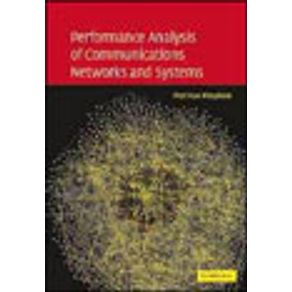This book describes mathematical and, in particular, stochastic methods to assess the performance of networked systems. It consists of three parts. The first part is a review on probability theory. Part two covers the classical theory of stochastic processes (Poisson, renewal, Markov and queueing theory), which are considered to be the basic building blocks for performance evaluation studies. Part three focuses on the relatively new field of the physics of networks. This part deals with the recently obtained insights that many very different large complex networks - such the Internet, World Wide Web, proteins, utility infrastructures, social networks - evolve and behave according to more general common scaling laws. This understanding is useful when assessing the end-to-end quality of communications services, for example, in Internet telephony, real-time video and interacting games. Containing problems and solutions, this book is ideal for graduate students taking courses in performance analysis.


